- About
- Research
-
-
- Special Reports & Features
- Braiding Accountability: A Ten-Year Review of the TRC’s Healthcare Calls to Action
- Buried Burdens: The True Costs of Liquified Natural Gas (LNG) Ownership
- Pretendians and Publications: The Problem and Solutions to Redface Research
- Pinasunniq: Reflections on a Northern Indigenous Economy
- From Risk to Resilience: Indigenous Alternatives to Climate Risk Assessment in Canada
- Twenty-Five Years of Gladue: Indigenous ‘Over-Incarceration’ & the Failure of the Criminal Justice System on the Grand River
- Calls to Action Accountability: A 2023 Status Update on Reconciliation
- View all reports.
- Special Reports & Features
-
-
- Yellowhead School
-
- The Treaty Map
- LIBRARY
- Submissions
- Donate
Our Team We are a community committed to Indigenous self-determination
- Leadership
- Operations
- Fellows
- Board of Advisors
- Past Members
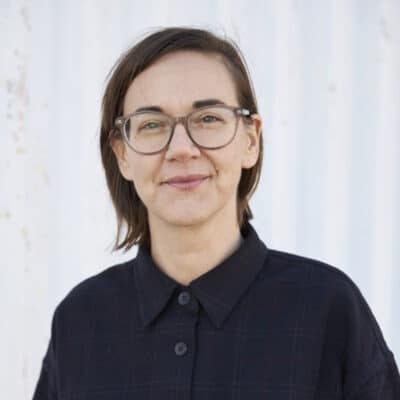
Dr. Shiri Pasternak
Co-Founder & Research Director (2018-2021) @shiripasternak
Shiri Pasternak co-founded the Institute and held the role of Research Director from June 2018 to June 2021. Since launching in 2018, Yellowhead Institute has become a nationally recognized critical voice on issues affecting Indigenous people, in part, due to her contributions. The early days of the Institute included the all-encompassing work of developing operational frameworks and processes, while also co-creating a robust community-centred research program. As Research Director, Shiri co-authored and co-produced the Critical Rights Framework report and both Red Papers, Land Back and Cash Back. Land Back includes groundbreaking research Shiri led on the impact of injunctions on First Nations that has been cited extensively and put to use supporting land defenders in court and at the UN. She also authored one of our most-read briefs, Wet’suwet’en: Why Are Indigenous Rights Being Defined By An Energy Corporation? and facilitated many other Yellowhead projects and collaborations. Shiri’s contributions to Yellowhead are immense and continue to play an important part in Yellowhead’s work.
Shiri is an Assistant Professor in Criminology at Toronto Metropolitan University in Toronto. She is the author of the award-winning book Grounded Authority: the Algonquins of Barriere Lake Against the State, published by the University of Minnesota Press in 2017. Her current research involves studying the risk of Indigenous rights in the natural resource extraction economy. She is now a Co-Investigator on a SSHRC Partnership Grant that pilots projects on Indigenous jurisdiction and infrastructure that think beyond extractivism.
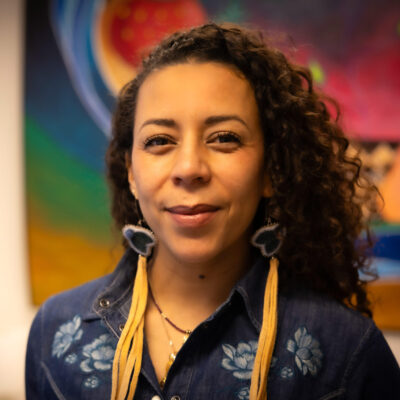
Dr. Suzanne Shoush
Advocate, Physician
Li'wat Coast Salish & Sudanese
Areas of Research/Activism:
Indigenous Health, International Solidarities
Dr. Suzanne Shoush is a First Nations/Black physician, mother, and advocate who lives and works in Toronto’s downtown core where she has spent more than a decade working in the city’s shelter systems. She is the inaugural Director of Indigenous Health Program for ICHA, where she is the lead physician for community and culture-based, trauma informed, culturally safe, and low barrier comprehensive primary care clinics including Nameres, Auduzhe Mino Nesewinong, Ode’I min, the Call Auntie Clinic, and the Indigenous Health Organization Outreach Program (IHOOP). She is also the Indigenous Health Faculty Lead for the Department of Family and Community Medicine with the University of Toronto Faculty of Medicine.
Dr. Shoush grew up in Alberta, her mother is Li’wat Coast Salish, and her father is Sudanese. In addition to her work in Toronto’s shelter systems, she has also worked throughout Ontario in rural and remote communities as a rural family physician.
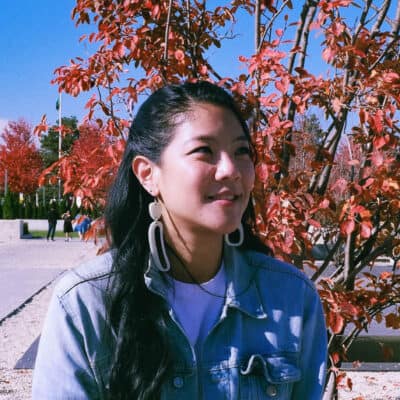
Yumi Numata
Director of Operations
Yumi is a Japanese-Chinese Canadian. She believes that how we work and the processes we use to engage each other are integral aspects of building a sustainable future. Equity, storytelling and capacity building are three areas of focus that have, and continue to inform her work. Yumi is especially interested in facilitating impact through strategic communications expertise that is grounded in empathy and intentional process development. She completed an undergraduate degree at the University of Toronto in Equity Studies and a Master’s degree at New York University in Media, Culture and Communications.
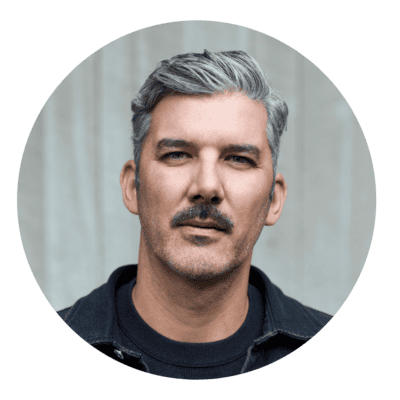
Dr. Hayden King
Executive Director Anishinaabe, Beausoleil First Nation @Hayden_King
Hayden is Anishinaabe from Beausoleil First Nation on Gchi’mnissing. Hayden is the executive director of Yellowhead Institute at Toronto Metropolitan University and has taught at McMaster and Carleton Universities as well as the First Nations Technical Institute, held senior fellowships at Massey College and the Conference Board of Canada, and served in advisory roles to provincial and tribal governments and Inuit organizations. His writing, analysis and commentary on Indigenous politics and policy is published widely.
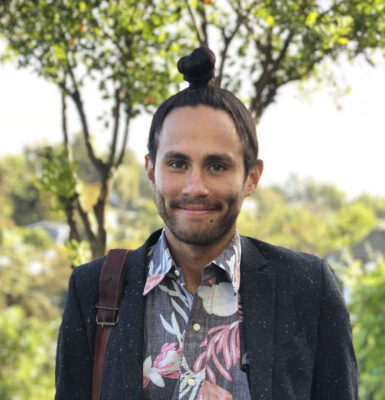
Dr. Uahikea Maile
Assistant Professor in the Department of Race, Diaspora, and Indigeneity at the University of Chicago
Kanaka Maoli, Maunawili, O’ahu
Areas of Research/Activism:
History, law, and activism on Hawaiian sovereignty, Indigenous critical theory, settler colonialism, political economy, feminist and queer theories, and decolonization
Uahikea Maile is a Kanaka Maoli scholar, organizer, and practitioner from Maunawili on the island of O‘ahu. He is assistant professor in the Department of Race, Diaspora, and Indigeneity at the University of Chicago.

Kelsi-Leigh Balaban
Community Engagement Lead Métis, Treaty 6 Territory
Kelsi is of Métis and Eastern European ancestry from Treaty 6 territory. Her family is from wâwâskesiwisâkahikan (Lac La Biche) and Brosseau, Alberta, with roots in Red River. Kelsi is passionate about Indigenous governance revitalization efforts and has been active in youth organizing for issues concerning Indigenous people in cities, particularly in harm reduction and urban Indigenous food sovereignty initiatives. Kelsi has a BA in Psychology and Native Studies and a certificate in Indigenous Governance and Partnership from the University of Alberta. She has recently completed her master’s in Political Science at the University of Toronto.
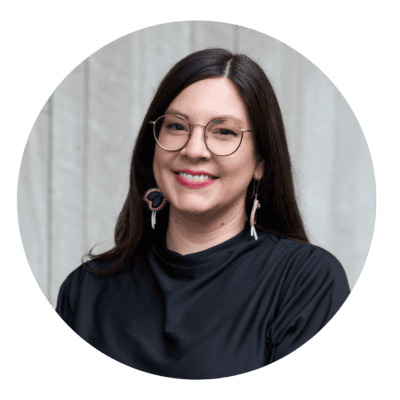
Dr. Eva Jewell
Anishinaabekwe, Deshkan Ziibiing (Chippewas of the Thames First Nation) @ebaans_
Eva Jewell joined Yellowhead Institute in 2020 held the role of Research Director from June 2021 to June 2025. Dr. Jewell’s contributions have been integral to the evolution and continued impact of Yellowhead. Her research with Dr. Ian Mosby on implementation of the Truth and Reconciliation Calls to Action, along with the many presentations, media interviews, and other knowledge mobilization strategies she has undertaken over the years to bring attention to Canada’s lack of progress on undertaking the Calls, have played a key role in shifting discourse and policy on reconciliation in the country. These reports are among Yellowhead’s top most read and cited. In addition to her research contributions, Eva’s grounded approach to leadership has been critical to the growth and evolution of governance at Yellowhead. Her contributions to Yellowhead will have a lasting impact.
Eva is Deshkan Ziibiing Anishinaabekwe (Chippewas of the Thames First Nation) with paternal lineage from Oneida Nation of the Thames. Her scholarship supports community-led inquiry on topics of reclaiming Anishinaabe governance, with interest on the role of women/femmes. Dr. Jewell’s recent research areas include urban Indigenous perspectives on gender, work, and care; and accountability in reconciliation. She is an Assistant Professor of Sociology at Toronto Metropolitan University.
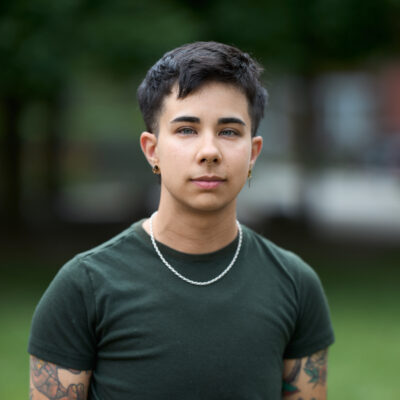
Ash Vols
Research Program Coordinator Métis, Saskatoon SK
Ash is a Queer+, Métis Ukrainian person from Treaty Six territory, originally from Saskatoon, SK, and now residing in Treaty 13 territory, Toronto, ON. They earned a BA from the University of Saskatchewan in International Studies with a focus on Indigenous Politics and Social Justice, and an MPPA from Toronto Metropolitan University. Ashley is deeply engaged in 2SLGBTQQIA+ issues, Indigenous data sovereignties, knowledge mobilization, and fostering solidarity across political movements. Currently, they serve as the Research Project Coordinator at the Yellowhead Institute.
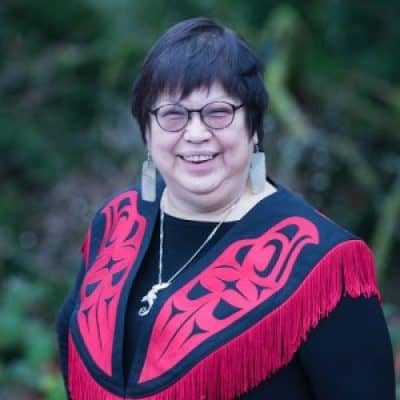
Dr. Judith Sayers
Board Member (2018 - 2022) Hupacasath First Nation @kekinusuqs
Judith Sayers was a founding advisor on the Yellowhead Institute board from June 2018 to June 2022. Judith helped the organization imagine its governance structure, objectives, and approach generally, rooted in a commitment to sovereignty, justice, and care. In addition, she contributed two policy briefs, Aboriginal Title in British Columbia Examined Under the New Liberal Agenda and A Response to “Decolonizing Clean Energy?”: The Case of the BC Indigenous Clean Energy Initiative, and a chapter to the Yellowhead special report, The UN Declaration on the Rights of Indigenous Peoples in Canada: Lessons from B.C.
Judith is the President of the Nuu-chah-nulth Tribal Council and Adjunct Professor in the School of Business and Environmental Studies at the University of Victoria. Judith practiced law for 18 years and served fourteen years as Chief of the Hupacasath First Nation. As Chief of her First Nation, she focused on capacity building and sustainable development. Judith was instrumental in several sustainable development projects and put in place mechanisms to help protect the territory. She is on the Clean Energy BC Board and the Chair of the New Relationship Trust Foundation, Co-Chair of the Island Corridor Foundation, Co-Chair of the Joint Working Group on First Nations Heritage Conservation and is on the board of the BC Achievement Foundation. Judith has been recognized many times, including being awarded Clean Energy BC’s Lifetime Achievement Award, inducted into Canadian Council of Aboriginal Business Hall of Fame and receiving the Silver Award from the Canadian Environmental Association for Climate Change. She was recently admitted as a member of the Order of Canada.
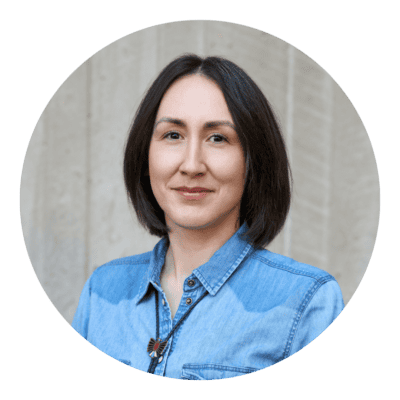
Dr. Megan Scribe
Education Director Ininiw iskwew, Norway House Cree Nation @megan_scribbles
Megan Scribe (Ininiw iskwew, Norway House Cree Nation) is an interdisciplinary Indigenous feminist researcher, writer, and educator. Scribe is an Assistant Professor in the Department of Sociology at Toronto Metropolitan University. Her research establishes connections between violence in the lives of Indigenous girls and settler colonialism. She is a longtime Community Council Member for Aboriginal Legal Services’ Diversion Program and a member of the Planning Committee for the annual Strawberry Ceremony.
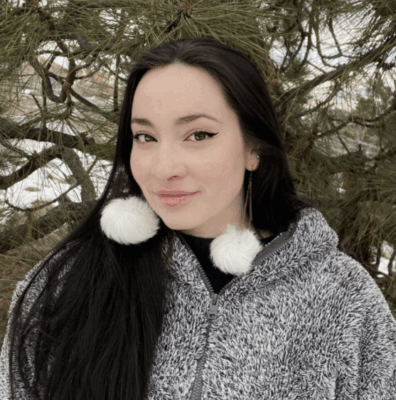
Janna Wale
Researcher
Gitxsan, Gitanmaax First Nation & Cree-Métis
Areas of Research/Activism:
Indigenous-led climate adaptation & resilience, Decolonial approaches to climate policy, Indigenous research methodologies, Public speaking and climate storytelling, relational climate strategies
Janna Wale is an award-winning Gitxsan and Cree-Métis researcher, working at the intersection of climate change adaptation, Indigenous governance, and knowledge mobilization. She works as the Indigenous Research and Partnerships Lead at the Pacific Institute for Climate Solutions. Janna is committed to decolonizing research systems and uplifting Indigenous leadership in climate action, policy, and storytelling across academic, community, and governance spaces. Her work is rooted in land, relationship, and responsibility to future generations.
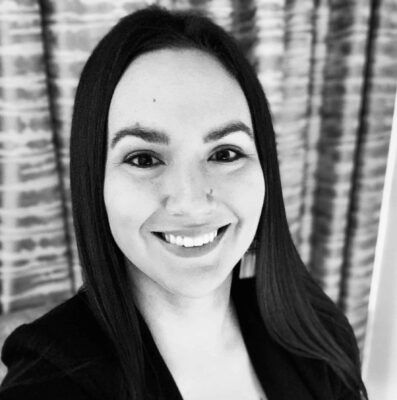
Dr. Michaela McGuire
Researcher & Educator
Haida Nation
Areas of Research/Activism:
Nation-based/Indigenous Justice, Belonging, Indigenous Peoples Carceral Experiences, Decolonization & Resurgence, Indigenous Governance
Jaad Gudgihljiwah, Michaela M. McGuire holds a PhD in Criminology from Simon Fraser University. She is an award-winning qualitative researcher and writer. Michaela is of mixed ancestry (Haida/Irish/
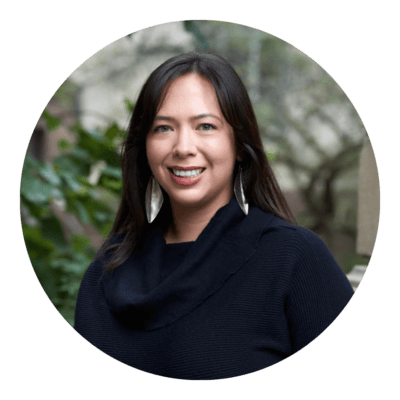
Dr. Jessica Penney
Associate
Nunatsiavut Inuk
Areas of Research/Activism:
Inuit food sovereignty, environment, climate
Jessica Penney is a Nunatsiavut Inuk raised in Iqaluit, Nunavut, with family from Rigolet and Carbonear, Newfoundland and Labrador. Dr. Penney is an Assistant Professor of Sociology at Toronto Metropolitan University. Her research supports Inuit food sovereignty, focusing on the intersection of Inuit health and environmental issues, including environmental contaminants and climate change. She is passionate about collaborative Inuit research methodologies and ethics, and capacity building in Indigenous research.

Linda Bùi
Education Programs Coordinator
Linda is a Vietnamese-Canadian who grew up in Treaty 13/19 or Toronto/Brampton. She’s also called Sri Lanka and most recently, Tiohtià:ke/Montreal home. Passionate about amplifying BIPOC voices and experiences through the arts, especially women of colour, she co-created groups like the Girls Empowerment Movement and Empowered Phụ Nữ. Linda holds a BA in international development studies from the University of Toronto Scarborough and a Master of Public Policy from McGill University. As the Education Programs Coordinator at Yellowhead, Linda supports initiatives like the MAKE program and Indigenous Public Administration and Governance programs.
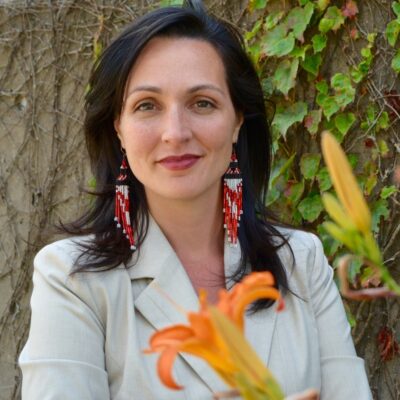
Naiomi W. Metallic
Assistant Professor, Schulich School of Law, Dalhousie University; Chancellor’s Chair in Aboriginal Law and Policy Listuguj Mi’gmaq First Nation @NaiomiMetallic
Naiomi Metallic was a founding Board Member of the Institute, from 2018 – 2024. Throughout these years, she provided steady guidance and encouragement to Yellowhead, and helped the Institute navigate complex situations with care and presence. In addition to her board duties, Naiomi contributed significantly to Yellowhead’s research. We published two special reports co-written by Naiomi, An Act Respecting First Nations, Inuit and Métis Children, Youth and Families: The Promise and Pitfalls of C-92 and the follow up report, An Act Respecting First Nations, Inuit and Métis Children, Youth and Families: Does Bill C-92 Make the Grade? These reports had a critical impact on discourse and action around child welfare, and have been downloaded thousands of times. Naiomi also co-directed Cash Back, the Institute’s second Red Paper.
Naiomi is from the Listuguj Mi’gmaq First Nation in Gespe’gewa’gi. She holds a BA (Dalhousie), an LLB (Dalhousie), an LLL (Ottawa) and an LLM (Osgoode). She was also a law clerk to the Hon. Michel Bastarache of the Supreme Court of Canada in 2006-2007. Naiomi still continues to practice law with Burchells LLP in Halifax (where she practiced for nearly a decade before joining the law school, primarily in the firm’s Aboriginal law group). She has been named to the Best Lawyer in Canada® list in Aboriginal law since 2015. As a legal scholar, she is most interested in writing about how the law can be harnessed to promote the well-being and self-determination of Indigenous peoples in Canada.
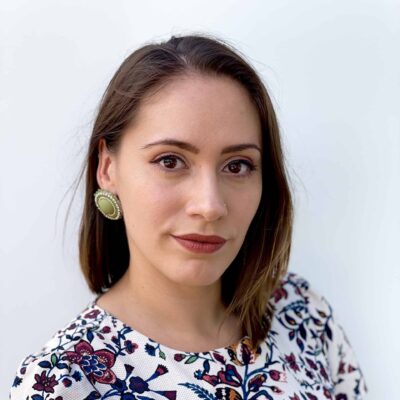
Jasmyn Galley
Copy Editor & Research Assistant Wiikwemkoong Unceded Territory & London, UK
Jasmyn Galley is a member of Wiikwemkoong Unceded Territory. She lived in England with her parents and younger sister until she was 18 before moving to Toronto to reconnect with her cultural roots and her Anishinaabe family on Manitoulin Island and throughout Ontario. Jasmyn has both an undergraduate and Master’s degree in English from the University of Toronto and currently works as a Gladue Writer at Aboriginal Legal Services and copyeditor for the Yellowhead Insititute. Jasmyn is passionate about social justice and raising awareness of systemic inequalities. She believes the stories we share have the power to make lasting societal change.

Kris Statnyk
Lawyer and Advisor Vuntut Gwitchin First Nation @Kris_Statnyk
Kris is Gwich’in and a citizen of the Vuntut Gwitchin First Nation in Old Crow, Yukon. His partner Shawna and their children Armayah and Jackson are Gitxsan of the Lax Skiik (eagle clan) Wilp (house) of Sakuum Higookw. Kris is a lawyer practicing law in the Yukon and British Columbia providing community-focused legal advocacy, strategic advice and negotiation support to Indigenous peoples in their pursuit of self-determination.
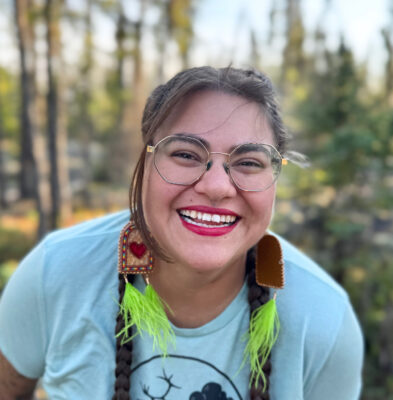
Lindsay Debassige
Land-based Educator
Anishinaabe, M'Chigeeng First Nation
Areas of Research/Activism:
On the Land Education, Harm Reduction, 2SIQTIP Resurgence, Housing Justice
Lindsay Debassige is a Two-Spirit M’Chigeeng Anishinabek born and raised in Sǫ̀mba K’è, Denendeh. They are the current Executive Director for Qmunity Camp NWT, providing on the Land opportunities for Two Spirit, Indigiqueer, and Transgender Indigenous Youth in the North. Within her work, Lindsay strives to build joint solidarity through regenerative relationships and advocates for her kin in reclaiming their birthrights to belonging in community and culture. They are passionate about creating ethical, anti-racist, decolonial spaces that empower Indigenous Peoples of the North to connect with their traditions, languages, and identities. #LANDBACK
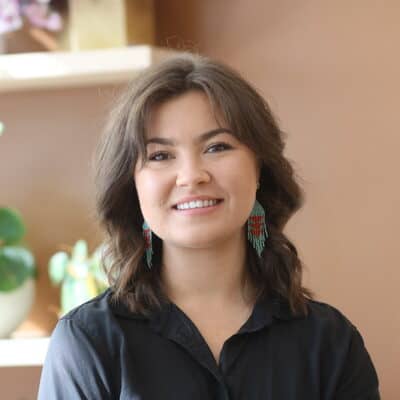
Sage Broomfield
Red Paper Researcher Nehiyaw, Treaty 8 & settler English/Irish
Sage is Neyihaw from Treaty 8 and settler English/Irish. She grew up between Treaty 6 Territory and unceded Coast Salish territory. Sage is passionate about collaborative approaches to learning and intersectional future-building. She has done work and research in youth education, alternative energy, and environmental decision making. She holds a BA in International Relations from the University of British Columbia and is currently pursuing a Master’s in Development Practice in Indigenous Development at the University of Winnipeg.
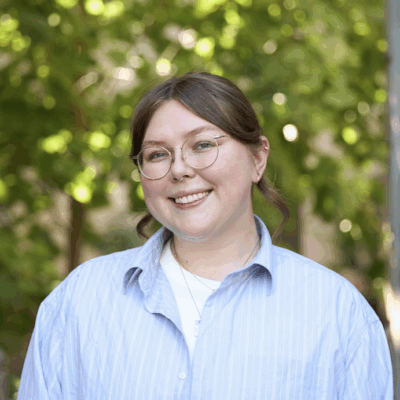
Courtney Vance
Researcher Northern-Tutchone/German, Selkirk First Nation
Courtney Vance is a PhD student in the department of Sociology at the University of Toronto, and research assistant at the Yellowhead Institute. She is of Northern-Tutchone, Tahltan and German/settler descent, and a member of Selkirk First Nation (Pelly Crossing, Yukon). Her research interests include Indigenous urbanism, Indigenous planning, Indigenous art, settler colonial cities, and reconciliation. Courtney splits her time living in Tkaronto and the unceded and unsurrendered territories of xʷməθkʷəy̓əm, Sḵwx̱wú7mesh, and səlilwətaɬ First Nations (“Vancouver”) where she grew up.
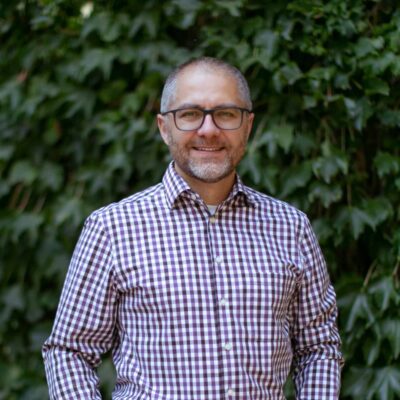
Dr. Damien Lee
Associate 2018-2023 Fort William First Nation @damienlee
Damien Lee was a Yellowhead Associate Fellow who provided valued contributions, leadership, and guidance during his 5 years with Yellowhead. This includes contributing the Special Report, “Between Membership & Belonging: Life Under Section 10 of the Indian Act” as well as several Yellowhead Briefs. Damien also acted as the lead of the Global Indigenous Solidarity Grant which has supported Indigenous students at TMU through increased learning opportunities across nations.
Dr. Damien Lee is a cis-gendered racially-white man who belongs with Anishinaabeg of the northern shore of Lake Superior. He was adopted as an infant into Fort William First Nation in accordance with Anishinaabe law, and raised as Anishinaabe by his family. Dr. Lee’s research focuses primarily on the resurgence of Indigenous legal and governance systems; he is also considered an expert on First Nations band membership issues. Mentored by Anishinaabe knowledge holders Doug Williams and Marlene Pierre, Dr. Lee is an Assistant Professor in the Faculty of Arts, Department of Sociology at Toronto Metropolitan University and holds the Canada Research Chair in Biskaabiiyang and Indigenous Political Resurgence.
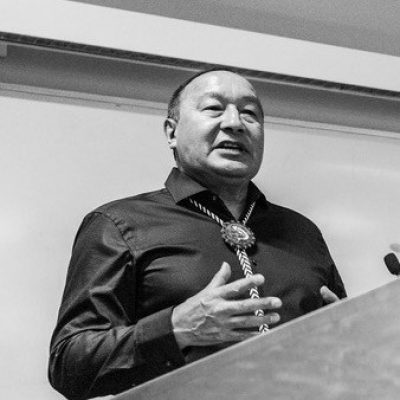
John Cutfeet
Research Fellow (2018 - 2022) Kitchenuhmaykoosib Inninuwug (KI) First Nation @cutfeetj
John Cutfeet was a Yellowhead Research Fellow for two terms, from 2018 – 2022. With expertise in energy, extraction, and the Far North Act, John provided valuable guidance as a participant in our first Red Paper community workshop, and responded generously to media requests. He also co-authored the Yellowhead Brief, After the Far North Act: Indigenous Jurisdiction in Ontario’s Far North. John’s presence always offered the Yellowhead team and collaborators an atmosphere of kindness and perseverance.
John Cutfeet was band councillor for Kitchenuhmaykoosib Inninuwug (KI) First Nation, Ontario, with responsibility for lands and environment, from 1999 to 2007. John has long worked on issues related to mining, development and peace, and coordinating watershed work in Indigenous communities. John lives in KI and continues to engage in the traditional pursuits of living off the land.
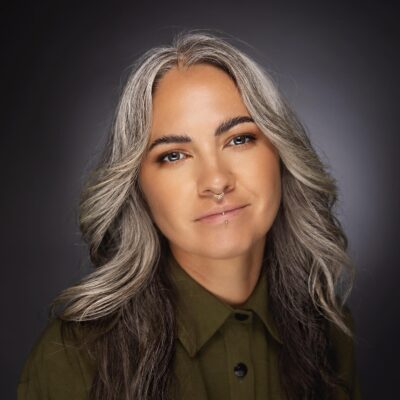
Mandee McDonald
Hide Tanner & Educator
Ininéw (Cree), York Factory First Nation
Areas of Research/Activism:
hide tanning, land-based learning, governance, Indigenous feminisms
Mandee McDonald is an Ininéw (Cree) hide tanner from Mántéwisipihk (Churchill, MB) and Sǫ̀mbak’è (Yellowknife). She has a B.A. in Political Science and a M.A. in Indigenous Governance from the University of Victoria. She is a PhD graduate in the Faculty of Native Studies at the University of Alberta where her work focuses on Indigenous governance, hide tanning and land-based learning. She is the Hide Camp Director at Dene Nahjo, a Dene-led innovation and arts collective based in Sǫ̀mbak’è, and has a faculty position at Dechinta Centre for Research and Learning. She is a member of York Factory First Nation.
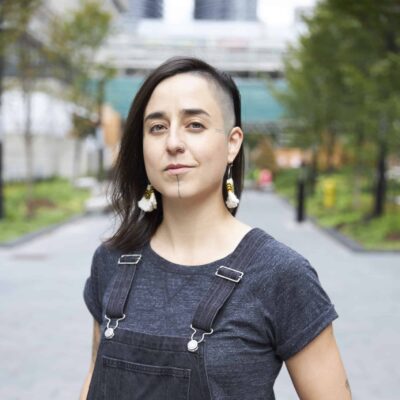
Anne Spice
Associate (2020-2022) Deisheetan Clan, Tlingit, Kwanlin Dun First Nation
Anne Spice (she/they) is a Tlingit member of Kwanlin Dun First Nation, a queer Indigenous feminist and anti-colonial organizer, and acting Assistant Professor in the Department of Geography and Environmental Studies at Ryerson University. Her work is in the tradition of feminist activist ethnography, and supports Indigenous land defense against settler state and extractive industry invasion. She has been actively supporting the Indigenous land re-occupation on Wet’suwet’en territories since 2015, and her work dwells in the intersection of traditional land use, Indigenous geographies, histories of Indigenous resistance, poetry and art. Her writing has been published in Environment and Society, Jacobin, The New Inquiry, and Asparagus Magazine.
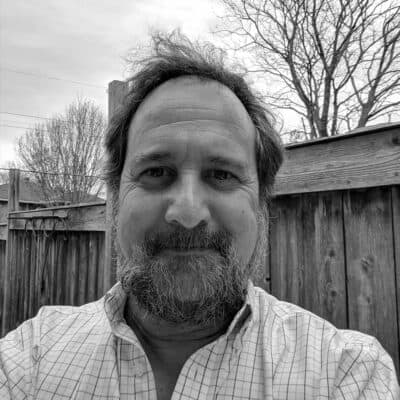
Peter DiGangi
Board Member (2018 - 2021)
Peter Di Gangi was one of Yellowhead Institute’s founding Board Advisors, active from 2018 – 2021. He provided valued guidance, encouragement and support during his term. In addition to his contributions as a Board Advisor, Peter also wrote one of the Institute’s early policy briefs, Fraser Institute: Property Rights for Everyone, Just not Indians.
Based in Ottawa, Ontario, Peter has been working with indigenous communities across Canada for over 35 years, focussing on historical, legal and cultural research. This has included work with the Royal Commission on Aboriginal Peoples, the Assembly of First Nations, and a variety of associations, tribal councils and communities in the Atlantic, Quebec, Ontario and B.C. It has also involved dealing with various institutions regarding the release and repatriation of information on behalf of First Nations
Peter has worked extensively with Anishnaabe communities on the North Shore of Lake Huron and Manitoulin Island, and with the Algonquin communities of the Ottawa Valley. He is currently Director of Policy and Research for the Algonquin Nation Secretariat, Timiskaming, Quebec.
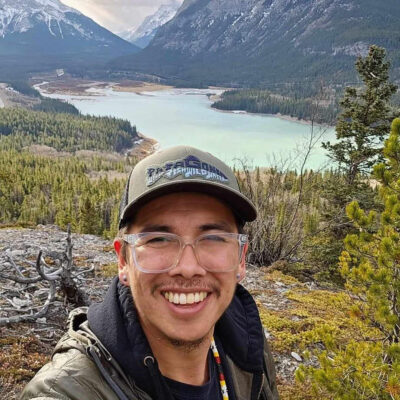
Quinn Meawasige
Land-based Educator & Community Organizer
Anishinaabe, Serpent River First Nation
Areas of Research/Activism:
Food Self-Determination (food sovereignty), Language revitalization, Land and water based learning, Land use and occupancy, Anishinaabe land, water and ecosystem stewardship, Treaty rights and inherent responsibilities
Quinn Meawasige is Anishinaabe from Serpent River First Nation. He graduated from Algoma University with a Bachelor of Arts in Community, Economic, and Social Development. Quinn currently works as a Community Relations Lead for Gaagige Zaagibigaa, a First Nations Food Self-Determination initiative servicing First Nations Peoples in Northern Ontario. Quinn is a founding member of The Waterways Collective, an Anishinaabe paddling collective whose work involves visiting pictograph sites, a contaminants testing initiative, micro fish hatchery operations, and a Manoomin (wild rice) revitalization initiative in his community’s homewaters. Quinn is a harvester, fisherman, hunter, forager, language learner/advocate, and an outdoor enthusiast.
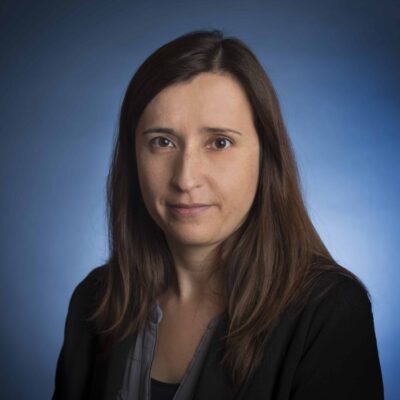
Dr. Julie Tomiak
Associate (2018 - 2019) Anishinaabe and European
Working at the intersections of critical Indigenous studies, political economy, sociology, geography and urban studies, Dr. Tomiak’s research examines the material and discursive dimensions of ongoing struggles against the dispossession and erasure of Indigenous people, communities, and nations in and from urban space. Her interdisciplinary research focuses on Indigenous self-determination and resistance to settler colonialism in a variety of contexts, including community building, governance and knowledge production. She is particularly interested in analyses that centre Indigenous resurgence and contextualize agency within the interrelationships between settler colonialism, capitalism and heteropatriarchy.
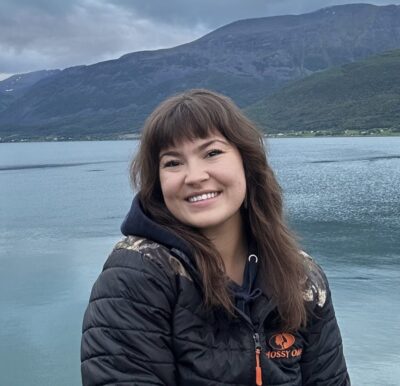
Sage Broomfield
nehiyaw, Treaty 8
Areas of Research/Activism:
Indigenous health, harm reduction, mental health, data sovereignty, queer methodologies
Sage is interested in research as a form of collective sense-making. In her recent work and learning Sage has focused on 2Spirit, queer, and gendered wellbeing; mental health and harm reduction; data sovereignty and Indigenous ethics. Sage is of mixed Cree, Cree Métis, and English Irish ancestry and is Treaty registered to Sawridge First Nation. She grew up between Edmonton, Alberta, Treaty 6 where she was born and unceded Coast Salish Territory where she was raised. She now lives in Winnipeg, Treaty 1.
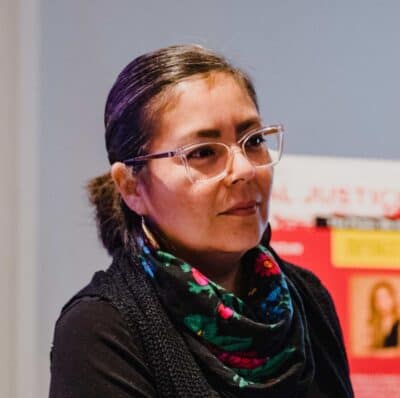
Tanya Kappo
Research Fellow (2018 - 2021)
Sturgeon Lake Cree Nation
Areas of Research/Activism:
Indigenous Political Institutions, Prairie Indigenous Politics, Indigenous Political Traditions, and Indigenous Women
@Nehiyahskwew
Tanya played a key role in Yellowhead’s beginnings. Celebrated as a prominent leader, Tanya was invited as a panelist speaking on Indigenous Strategies for Transformative Change at the launch of Yellowhead Institute. Tanya’s efforts are focused on working towards creating space for an authentic existence of Indigenous people. As a lawyer, she represented survivors of Residential Schools and she recently worked with the National Inquiry into Missing and Murdered Indigenous Women and Girls. She speaks often on Indigenous issues and is a member of the National Collective for Walking with our Sisters.

Dr. Matthew Wildcat
Research Fellow (2018 - 2022) Nehiyaw (Plains Cree), Ermineskin Cree Nation.
Matthew Wildcat was an inaugural Research Fellow from 2018 – 2022.
Matthew Wildcat is an instructor in Political Science and Native Studies at the University of Alberta. Wildcat’s primary research interest is on the history of Indigenous political orders on the prairies and contemporary Indigenous institutions. His areas of expertise include, First Nation Governments, First Nation service delivery, Indigenous Political Institutions, Prairie Indigenous politics, Indigenous political traditions.
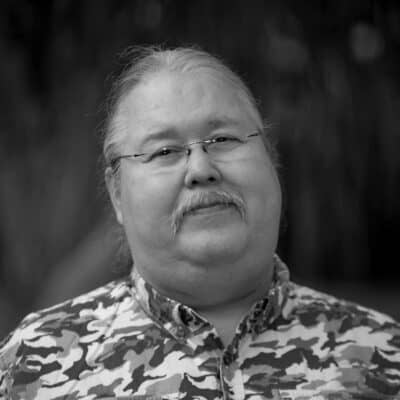
Russ Diabo
Board Member (2018 - 2019) Mohawk Nation, Kahnawake
Joseph Russell Diabo is a son of a Kahnawake Mohawk Iron Worker, and is a member of the Mohawk Nation at Kahnawake. Russ has been active in Indigenous politics from a young age. Russell pursued Native Studies, receiving a BA from Laurentian University, and an MA in American Indian Policy Studies from the University of Arizona. He went on to hold positions with the National Indian Brotherhood and the Assembly of First Nations and was a founding executive member of the Aboriginal Peoples’ Commission of the Liberal Party of Canada. Russell is also the founder and author of an online newsletter called the First Nations Strategic Bulletin and was instrumental in founding the Defenders of the Land Network in 2008 with the late Arthur Manuel. He has over 40 years of policy analysis, community planning, and advocacy experience around Aboriginal Title and Treaty Rights.
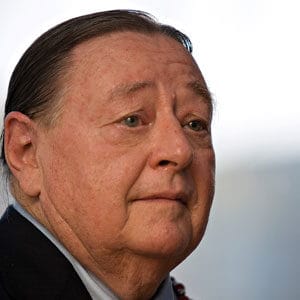
Sa'ke'j Henderson
Research Fellow (2018 - 2020) Bear Clan of the Chickasaw Nation and Cheyenne Tribe
Sa’ke’j Henderson was an inaugural Research Fellow from 2018 to 2020.
Sa’ke’j is a noted international human rights lawyer and an authority of protecting Indigenous heritage, knowledge, and culture. During the constitutional process (1978-1993) in Canada, he served as a constitutional advisor for the Mi’kmaw nation and the NIB-Assembly of First Nations. In addition, he was one of the drafters and expert advisors of the principles and guidelines for the protection of Indigenous Heritage and Declaration of the Rights of Indigenous Peoples in the UN Human Rights fora.
His books include Aboriginal Tenure in the Constitution of Canada (2000), Treaty rights in the Constitution of Canada (2007); Protecting Indigenous Knowledge and Heritage (2000), Mi’kmaw Society v. Canada in UN Human Rights Committee (ebook 2005); and Indigenous Diplomacy and Rights of Peoples: Achieving Recognition (2008). For his achievements, he has been awarded the Indigenous Peoples’ Counsel (2005), the National Aboriginal Achievement Award for Law and Justice (2006), and Honorary Doctorate from Carleton University (2007) and fellow, Royal Society of Canada (2013).
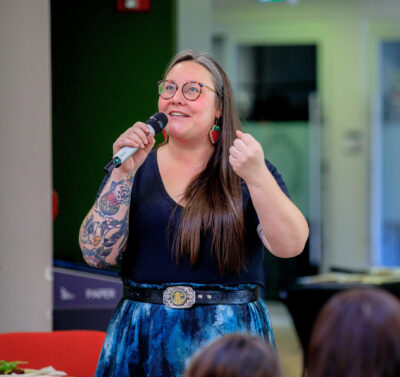
Sara Mai Chitty
Educator & Community Weaver
Anishinaabe, Alderville First Nation
Areas of Research/Activism:
Climate change action, Indigenous education, Indigenous pedagogies
Sara Mai Chitty is an auntie, dreamer and community weaver, and a member of Alderville First Nation. Professionally, she is an anti-colonial educator, centering Indigenous and storytelling pedagogies in her practice. Among many things, she is one of four co-creators of a free, open online course called “Connecting for Climate Change Action,” bringing Indigenous and Euro-Western sciences and knowledges about climate change together to inspire hope and action in learners. Sara Mai advocates that intercultural and interdisciplinary collaborations, grounded in shared hope and ongoing reciprocal relationality with the land and one another are critical to co-building just and generative futures.
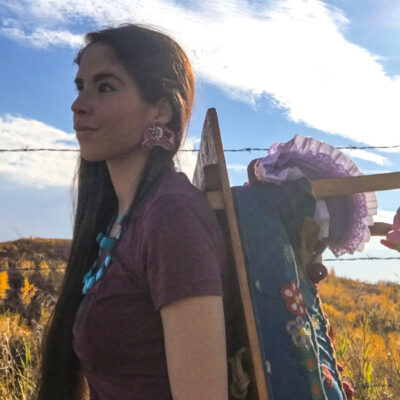
Andrea Landry
Red Echo Associates, Lifeskills Coach
Anishinaabe, Pays Plat First Nation
Areas of Research/Activism:
Indigenous Kinship Systems and Practices, Indigenous Rights, Family Wellness, Healing
@JibbyJoos
Andrea Landry is a lifeskills coach through Red Echo Associates and can currently run a variety of programs in the areas of parenting, health and wellness, social justice, colonialism, Indigenous kinship, grief and recovery, trauma, and other topics. She is originally from Northwestern Ontario from a small community called Pays Plat First Nation but currently resides on Treaty 6 Territory on Poundmaker Cree Nation in Saskatchewan, Canada. She teaches for the First Nations University of Regina and has also done therapist work for schools on reserve. She holds a Masters in Communications and Social Justice from the University of Windsor, with a degree in Child and Youth Care and a diploma in Social Work from Vancouver Island University. She is a mother, an Indigenous rights defender, a freelance writer, blogger, and strives to provide individuals, families, and communities with the tools they need in order to create change for themselves.
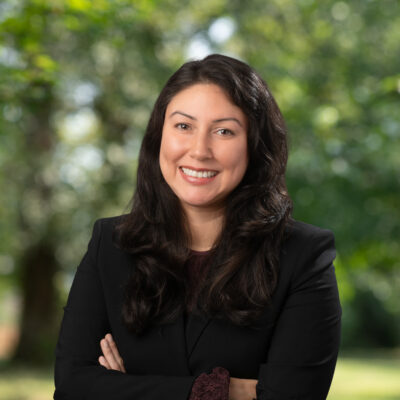
Christina Gray
Associate, JFK Law Corporation, LL.M., University of Victoria Distinguished Fellow
Dene and Ts’msyen citizen
Areas of Research/Activism:
Gender, Indigenous Legal Feminism, Human Rights, Aboriginal Law, Indigenous Legal Orders, Constitutional Law, International Law
@stina_gray
Christina Gray holds the Sm’algyax name ‘Aɬaxsgaaxsiɬ Gaax Aganɬaak, meaning “the raven caws its name early in the morning.” She is a member of the Ts’msyen community of Lax Kw’alaams, BC, and Dene from Łutselkʼe, NWT.
Christina has been a Yellowhead Institute Fellow since 2018 and serves as an associate at JFK Law LLP. Her legal practice centers on nation-building and Indigenous legal advocacy, working with First Nations throughout Canada to advance recognition of their laws, self-determination, and rights.
She holds a Master of Law from the University of Victoria (2024) and both her Juris Doctor and Bachelor of Arts in Art History from the University of British Columbia (2013). Her scholarly work includes publications on Indigenous class actions, treaty interpretation, and Indigenous place names. Christina currently serves as Vice-President of the YVR Arts Foundation, an independent not-for-profit organization supporting artist development and advancement in the Yukon and British Columbia.
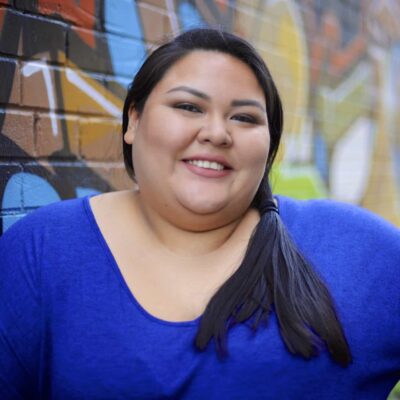
Courtney Skye
Policy Analyst Distinguished Fellow
Mohawk, Turtle Clan Six Nations of the Grand River Territory
Areas of Research/Activism:
Gender-Based Analysis, Ending Violence, Social Policy for Youth, Child Welfare
@MOHAWKEMOTIONS
Courtney has led policy development for the public sector at local, provincial, and national levels. This includes a framework for youth development, a strategy co-developed with Indigenous partners to transform the governance, design, and delivery of child and family services, and a strategy to end violence against Indigenous women. Courtney strives to end all forms of colonial violence experienced by Indigenous peoples.
Headshot by Ali Eisner
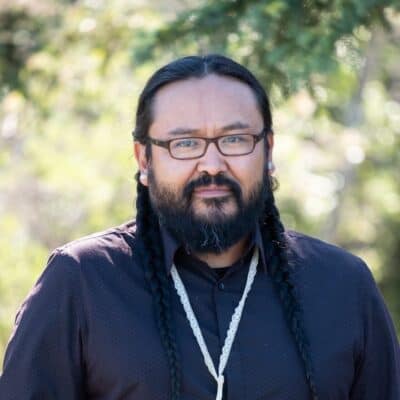
Dëneze Nakehk’o
Founding Member, Dene NahjoDistinguished Fellow
Dene, Liidlii Kue First Nation
Areas of Research/Activism:
Dene Ways of Knowing, Journalism, Broadcasting, Communication, Public Speaking, Northern Political Reality, Basketball, Radio, Television
@Deneze
Dëneze is a strong advocate for Indigenous knowledge systems, particularly Dene ways of knowing. As one of the founding members of Dene Nahjo, he works at encouraging and supporting connections/re-connections to land, language and culture. He is a public speaker that recognizes and actively confronts the impacts of colonization through Dene methods of decolonization. He has over a decades worth of experience in northern media and communications.
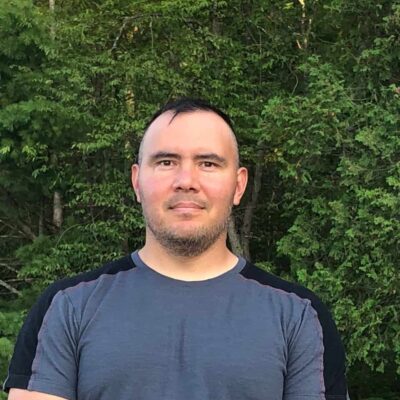
Dr. Brock Pitawanakwat
Associate Professor, Indigenous Studies, York University Distinguished Fellow
Anishinaabe, Whitefish River First Nation
Areas of Research/Activism:
Indigenous languages, Indigenous governance, Indigenous social movements, Indigenous health
@BrockStarPhd
Brock’s current research interests intersect with language revitalization and Indigenous concepts of health and wellness. In 2013 he completed a three-year interchange as a Senior Researcher with the Truth and Reconciliation Commission of Canada. He has also held faculty positions at the University of Winnipeg (Manitoba) and First Nations University of Canada (Saskatchewan). In 2009, Brock completed his PhD at the University of Victoria with a dissertation on Anishinaabe language revitalization.
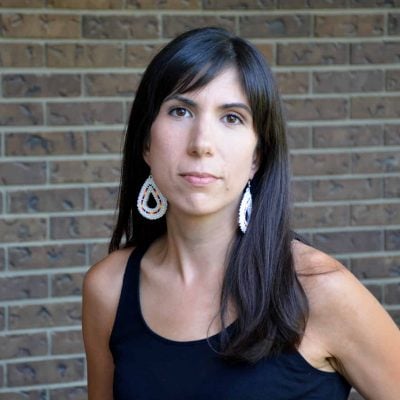
Dr. Gina Starblanket
Associate Professor, Indigenous Governance, University of VictoriaDistinguished Fellow
Cree/Saulteaux, Star Blanket Cree Nation, Treaty 4 territory
Areas of Research/Activism:
Treaty implementation, prairie Indigenous politics, Indigenous-state relations, gender and Indigenous feminism
@GStarblanket
Gina Starblanket is an Associate Professor in Indigenous Governance at the University of Victoria. Gina is Cree and Saulteaux and a member of the Star Blanket Cree Nation in Treaty 4 territory. She is the principal investigator of the Prairie Indigenous Relationality Network, co-author of Storying Violence: Unravelling Colonial Narratives in the Stanley Trial (with Dallas Hunt), and has critical work in the Canadian Journal of Political Science, The American Indian Culture and Research Journal, and Constitutional Forum.
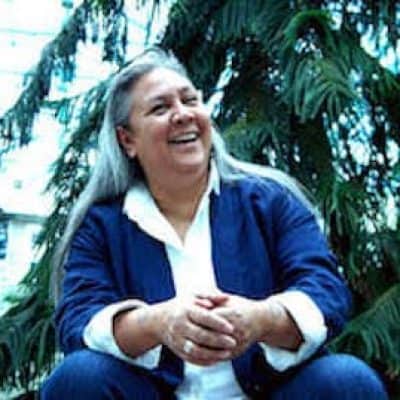
Dr. Raven Sinclair
Professor, Faculty of Social Work, University of Regina Distinguished Fellow
Nehiyaw (Cree), George Gordon First Nation, Treaty 4 Territory
Areas of Research/Activism:
Indigenous Child Welfare; Cultural Identity; Intergenerational Trauma; Indigenous Healing; Sixties Scoop; Lateral Violence
Raven’s academic background is psychology and social work; she holds a PhD from the University of Calgary. She is a survivor of the Sixties Scoop and has been researching the issue of the Indigenous Child Removal System in Canada since 1998. As the result of her work on the topic, including a 5-year SSHRC grant, she is a federal court appointed advisor to the Sixties Scoop Healing Foundation arising out of the Brown v Canada (2017) national class action victory and settlement. She has also been involved in the development of Indigenous research ethics in Canada. She is also passionately interested in intergenerational trauma and recovery and is developing lateral violence and racism interventions. Raven is a member of the CIHR College of Reviewers, the Waakebiness Institute of Indigenous Health Research advisory committee, and recent past Chair of the University of Regina Research Ethics Board. Raven is a renovation junkie, a chess addict, and proud mother of a wild and wicked 13 year old daughter who is the light of her life.
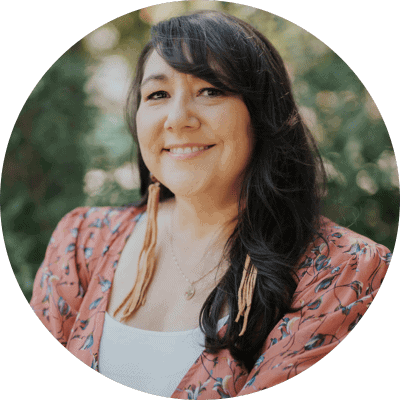
Dr. Shalene Jobin
Associate Professor in the Faculty of Native Studies; Director of the Indigenous Governance and Partnership program, University of AlbertaDistinguished Fellow
Cree and Métis, Red Pheasant Cree First Nation (Treaty Six)
Areas of Research/Activism:
First Nation Governance, Land Based Education, Plains Treaty History
Shalene’s research focuses on Indigenous governance and Indigenous economic systems. She holds the Canada Research Chair in Indigenous governance and was the founding director of the Indigenous governance program at the University of Alberta. Her book, Nehiyawak Narratives: Upholding Indigenous Economic Relationships examines settler colonialism through the lens of economic exploitation, using Indigenous methodologies and critical approaches. Shalene is the Vice President Academic at the First Nations University of Canada.
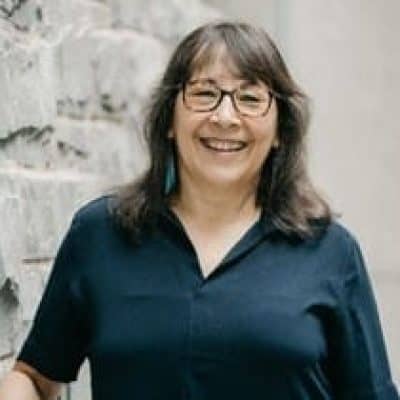
Dr. Sherry Pictou
Assistant Professor, Faculties of Law and Management at Dalhousie UniversitDistinguished Fellow
Mi’kmaw from L’sitkuk (Bear River First Nation)
Areas of Research/Activism:
Indigenous Women, Indigenous Knowledge Systems, Indigenous Food Sovereignty, Indigenous Struggles for Social Justice
@SherryPictou
Dr. Sherry Pictou is a Mi’kmaw woman from L’sɨtkuk (water cuts through high rocks) known as Bear River First Nation, Nova Scotia. She an Assistant Professor in the Faculties of Law and Management at Dalhousie University focusing on Indigenous Governance. Dr. Pictou is also a former Chief for her community and the former Co-Chair of the World Forum of Fisher Peoples. She is a member of The Intergovernmental Science-Policy Platform on Biodiversity and Ecosystem Services (IPBES)Task Force on Indigenous and Local Knowledge. Her research interests include decolonizing treaty relations, Social Justice for Indigenous Women, Indigenous women’s role in food and lifeways, and Indigenous governance.
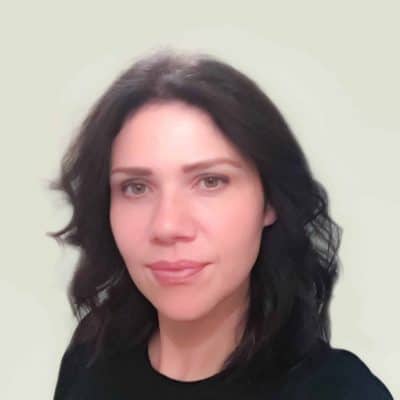
Dr. Vanessa Watts
Assistant Professor, Indigenous Studies and Sociology, McMaster UniversityDistinguished Fellow
Six Nations of the Grand River
Areas of Research/Activism:
Indigenous onto-epistemologies, Indigenous feminisms, Indigenous social lives, Indigenous governance systems, Non-human/other-than-human relationships, Settler colonialism
@Vanessa_A_Watts
Vanessa’s research centres on how Indigenous peoples and their lands are influenced by colonialism and efforts to revitalize traditional governance systems amidst this. Her work has an emphasis on how Indigenous women are affected by colonialism. She presents her work nationally and internationally, and consults for Indigenous-focused initiatives on issues such as governance, education, cultural competency and justice. Her experience in non-profit, government and post-secondary settings giver her a unique understanding of the impacts of colonialism and legislation on Indigenous communities.
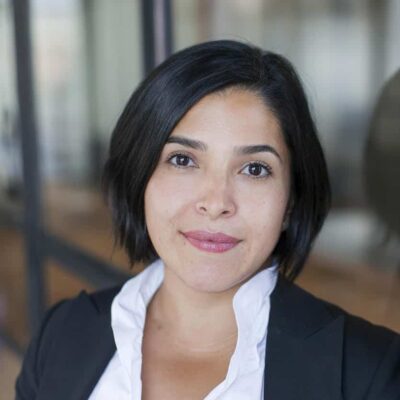
Elisa Levi
Distinguished Fellow
Chippewas of Nawash First Nation
Areas of Research/Activism:
Food sovereignty, Health equity, Community food planning
@elisa_levi
After several years in the non-profit sector strengthening Indigenous Peoples health and the reclamation of Indigenous Food Systems, Elisa is complementing this experience studying medicine at the Michael G. DeGroote School of Medicine. She contributes her leadership as a community elected Trustee for her First Nation, Chippewas of Nawash and as a Board Director for the Anishnawbe Health Foundation. As a Registered Dietitian, Elisa holds a Master of Public Health from Lakehead and BaSc from Ryerson University.
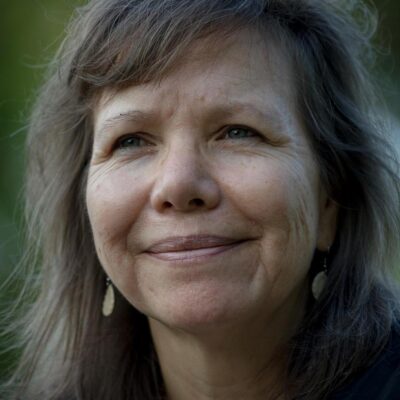
Ellen Gabriel
Cultural Consultant, Human Rights and Environmental Advocate for Indigenous peoplesDistinguished Fellow
Kanien’kehá:ka (Mohawk), Kanehsatà:ke
Areas of Research/Activism:
Human Rights, Environment, Gender Equity, Language and Culture Revitalization
@EllenGabriel1
Ellen began her public activism during the 1990 Siege of Kanehsatà:ke (1990 “Oka” Crisis) as the spokesperson for her community. Since 1990, Ellen has worked consistently and diligently as a human rights and environmental advocate for rights of Indigenous peoples. In addition to being President of the Quebec Native Women’s Association from 2004 – 2010, she has also presented nationally and internationally and participated in the United Nations Permanent Forum on Indigenous Issues. She has won multiple awards including the Indigenous Women’s Initiative “Jigonsaseh Women of Peace Award” for her advocacy work.
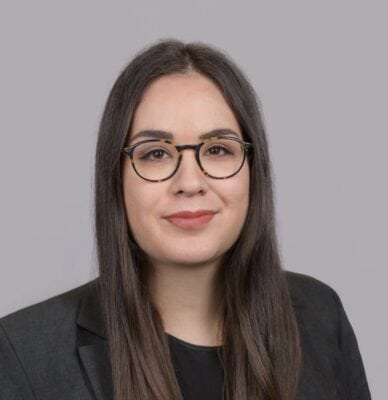
Emily Riddle
Senior Advisor, Indigenous Relations, Edmonton Public Library nehiyaw, Alexander First Nation,Treaty 6 @emilyjaneriddle
Emily Riddle is nehiyaw, a member of the Alexander First Nation in Treaty 6 territory. She grew up in and is currently based in Edmonton. She has experience working with First Nations and Metis communities on policy, governance, and communications projects. Prior to her current role, she worked for the First Nations Education Steering Committee, a non-profit that represents over 100 First Nations. She is currently the Senior Advisor, Indigenous Relations for the Edmonton Public Library and was named Top 30 Under 30 by the Alberta Council for Global Cooperation in 2019. Her writing has appeared in the Globe and Mail, Teen Vogue, Vice, and other publications.
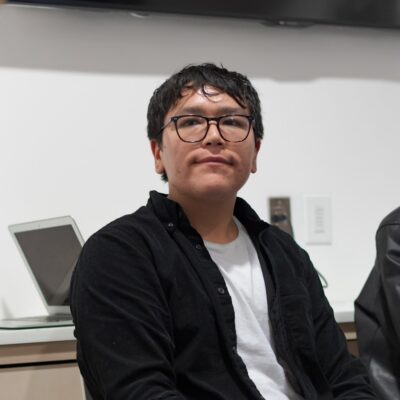
Finn Simard
Artist and Policy Analyst
Anishinaabe-Metis
Areas of Research/Activism:
Child welfare, ending violence against Indigenous women, girls, 2SLGBTQQIA, and art
Finn Simard is registered status at Couchiching First Nation. He is an artist and designer working with visual material culture to examine current politics and policy schemes that implicate First Nations. His work investigates bad feelings and bad policy as manifestations of settler-colonial genocide, these investigations support his works goal of asserting the position that First Nation art is an exclamation of First Nation inherent sovereignty. Simard’s work illustrates a problematized national narrative of First Nation and Canadian relations to ultimately reveal present modes of settler-colonialism, genocide, First Nation politics, and policy.
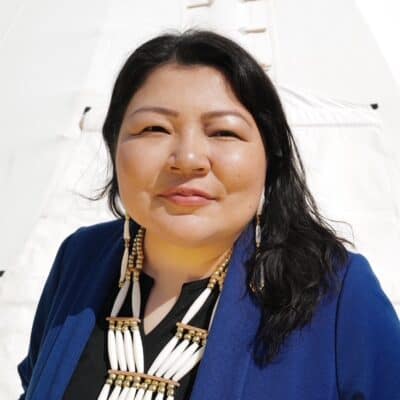
Janice Makokis
Indigenous Education Advisor/Instructor, Faculty of Extension, Yellowhead Tribal College nehiyaw iskwew, Saddle Lake Cree Nation, Treaty 6 @bearclannation
Janice Makokis is a nehiyaw iskwew (Cree woman) and mother to son Atayoh Kan Asiniy (Spirit Rock) Makokis from Onihcikiskwapiwin (Saddle Lake Cree Nation) of Treaty No. 6 Territory (now known as Alberta). Her roles at the University of Alberta includes working to develop curriculum/programming within the Faculty’s Indigenous programs. She is also involved in International Indigenous advocacy work through various International bodies and United Nations mechanisms to advance the discourse on Indigenous People’s rights. She holds a B.A. in Native Studies (minor Political Science) from the University of Alberta, an M.A. in Indigenous Governance from the University of Victoria and an L.L.B. (Bachelor of Laws) from the University of Ottawa. Janice is thankful to her family for teaching her how to live as a nehiyaw, to her Nation, to Indigenous knowledge holders who hold sacred teachings in trust for those who wish to learn the ways of her People so future generations will have something left for them.
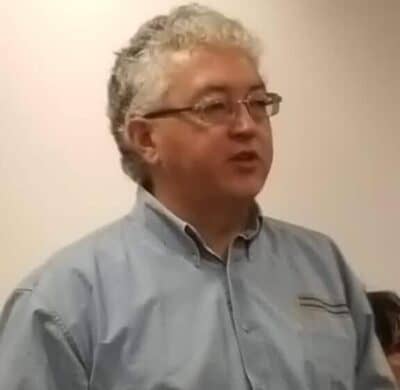
Karihwakeron Tim Thompson
Policy Analyst Mohawk Nation, Bear Clan Family, Wahta Mohawk Territory @Okwarikowa
Karihwakeron is a strong proponent of Indigenous language revitalization, and is a proud graduate of the Onkwawén:na Kentióhkwa Kanienkéha/Mohawk language immersion program. Karihwakeron has held many roles, including: Policy Director of the Ontario Federation of Indian Friendship Centres, Education Director and Director of Languages for the Assembly of First Nations, President and CAO of First Nations Technical Institute. Karihwakeron was named as one of twelve defenders of human rights in the “Speak Truth to Power” initiative.
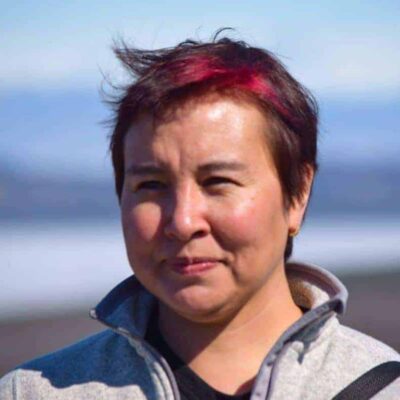
Kunuk Inutiq
Consultant Clyde River Inuk
Kunuk (Sandra) Inutiq is newly self-employed. She previously served as the Director of self-government at Nunavut Tunngavik Inc. (NTI), studying self-government for Nunavut. Before that, she was the Chief Negotiator for the Qikiqtani Inuit Association for the Tallurutiup Imanga National Marine Conservation Area’s Inuit Impact and Benefit Agreement. She has also worked as a Senior Associate for Inuit Nunangat at the Tides Canada Foundation (now known as MakeWay). Inutiq received her law degree from Akitsiraq Law School in 2005, and in 2006, she became the first Inuk woman in Nunavut to pass the bar exam (headshot by Niore Iqalukjuak).
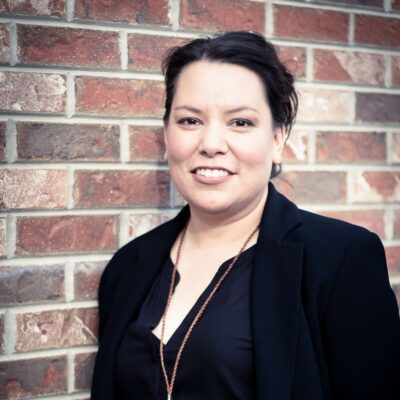
Minnawaanigogiizhigok a.k.a Dawnis Kennedy
Waabizheshi Marten Clan of the Anishinaabe Nation and descendant of Canadian setters
Areas of Research/Activism:
Anishinaabe Izhichigewin (ways of life), Onakonigewin (ways of law) and Inendamowin (ways of thought), Culture-Based Education, Impact of the Canadian Indian Act, Intergenerational Change and Responsibility, MMIWG2S Advocacy, Indigenous Women, Parenting, Surviving Colonization Daily
Minnawaanigogiizhigok is a second degree Midewiwin (Way of the Heart) person and was raised as Ogijiidaakwe (Warrior woman/Woman of a Big Heart) by the Ogijiidaa Society of and elders of her home community Bagwaanishkoziibing (Roseau River Anishinaabe First Nation). She is of both European and Ojibwe Anishinaabe lineage and is dedicated to reclaiming both traditions in her life and in her work. Minnawaanigogiizhigok is dedicated to the pursuit of Minobimaadiziwin (Good Life). She seeks and creates opportunities to live life from her heart. She builds on the good choices her family, mentors and friends made in their lives: their choices to work hard, raise their families, put down alcohol, help their relatives, support the people and reconnect to Midewiwin, living the ways of life, languages and traditions that our ancestors sent forward to us. In the footsteps of her all ancestors, Minnawaanigogiizhigok continues to learn and to grow, taking joy in this good life and doing what she can to support others who seek to do the same.

Riley Yesno
Writer, Speaker, StudentDistinguished Fellow
Anishinaabe, Eabametoong First Nation
Areas of Research/Activism:
Indigenous Futures, Gender and 2SLGBTQIIA, Youth, Climate Justice
@Rileyyesnomaybe
Riley Yesno (she/her) is a queer Anishinaabe scholar, writer, and public intellectual from Eabametoong First Nation. She is highly sought after for her words and analysis— called an ‘Indigenous powerhouse’ by the Toronto Star— she has been a contributor and commentator for some of the largest media outlets in Canada and the world, including the New York Times, BBC World News, The Globe and Mail, and CBC National News. Riley has also travelled the globe speaking at internationally renowned institutions and events, including the UN climate negotiations, the Stockholm Forum on Gender Equality, TEDx stages, and many others. Her major project right now is teaching at TMU while finishing her Ph.D. at the University of Toronto. She studies Indigenous/Canadian politics and is a Vanier Scholar.
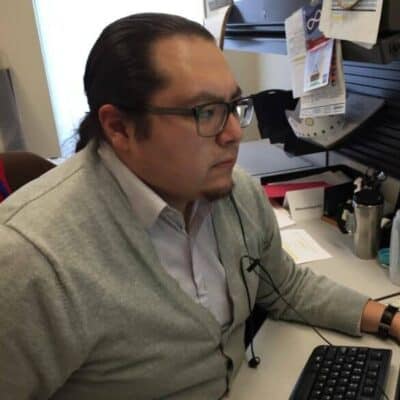
Robert Houle
Writer/Researcher/Political Advisor/Policy AnalystDistinguished Fellow
Wapsewsipi (Swan River) First Nation, Treaty 8
Areas of Research/Activism:
Numbered Treaties, Genealogy, Archival Research and Government Policy
@NehiyawRob
Rob maintains close relationships in Treaty No. 6 and 8. He has also married into the Stoney and Blackfoot Nations in Treaty No. 7. He continues to write and research the aspects of Treaty, relationships and obligations of all parties. He enjoys archival research and the information contained in centuries old documents. He has been actively outspoken regarding Indigenous Rights, traditions and their relationship with Policing bodies.
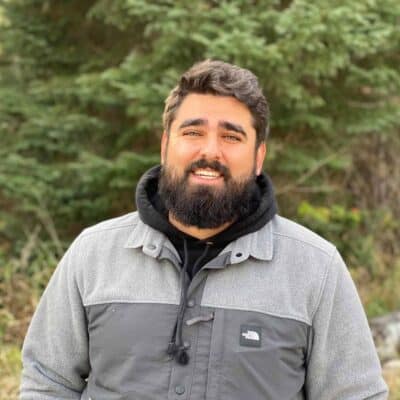
Shady Hafez
Associate
Algonquin Anishinabe and Syrian, Kitigan Zibi Anishinabeg
Areas of Research/Activism:
Community Development; Urban Indigenous Issues; Anishinabe Governance and Law; Cultural and Spiritual Revitalization; Cultural Identity; Solidarity Building with Black/POC and newcomer/refugee communities; and Francophone/Indigenous relations
@Shadyhfz
Shady Hafez is an Assistant Professor in the Department of Politics and Public Administration at Toronto Metropolitan University, specializing in Indigenous politics and governance, and serves as an Associate with the Yellowhead Institute. An Anishinabe (Algonquin) and Syrian scholar, he is a registered member of Kitigan Zibi Anishinabeg and is currently completing a PhD in Sociology at the University of Toronto. Before entering academia, he spent over 15 years supporting Indigenous organizations and governments, and is dedicated to the advancement of Indigenous liberation and self-determination.
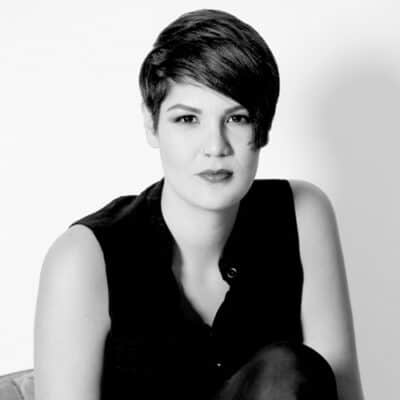
Tara Williamson
Research Director, Indigenous Law Research Unit, University of VictoriaDistinguished Fellow
Opaskwayak Cree Nation, Gaabishkigamaag (Swan Lake, MB)
Areas of Research/Activism:
Governance, Law & Policy, Gender, Arts & Culture
@WilliamsonTara
Tara holds degrees in social work, law, and Indigenous governance. In the last 9 years, she has been a professor and Instructor at Fleming College, Trent University, Ryerson University/First Nations Technical Institute, the University of Winnipeg, and the University of Victoria. As an independent researcher and consultant, she has worked with and for Indigenous communities and organizations at the local, regional, provincial and national level. Tara is also a professional writer and musician and was the recipient of the 2020 Joseph S. Stauffer Prize in music from the Canada Council for the Arts. She is currently a Senior Researcher with the Indigenous Law Research Unit at the University of Victoria.
Photo by Summer Faith Garcia, RezKat Studios.
